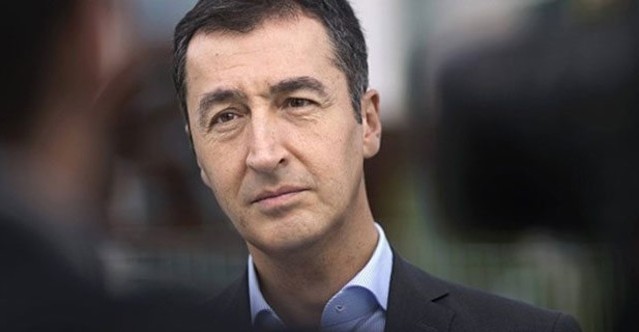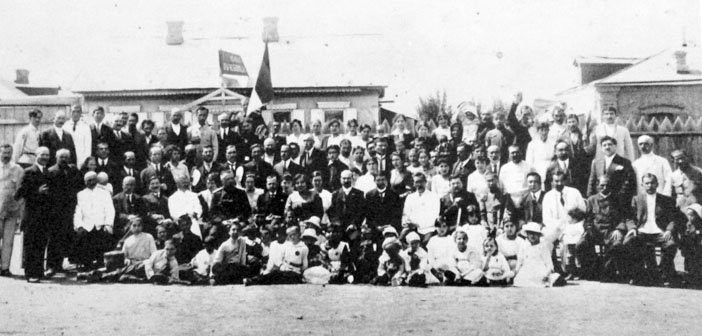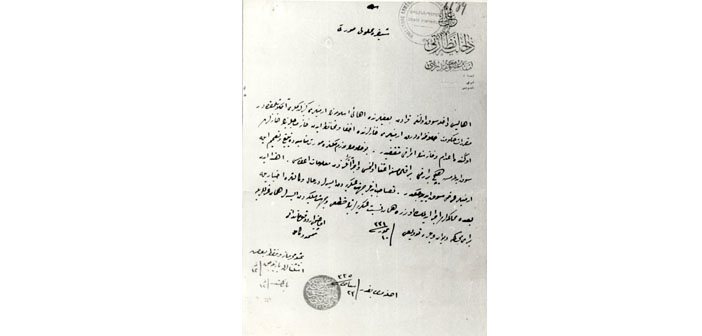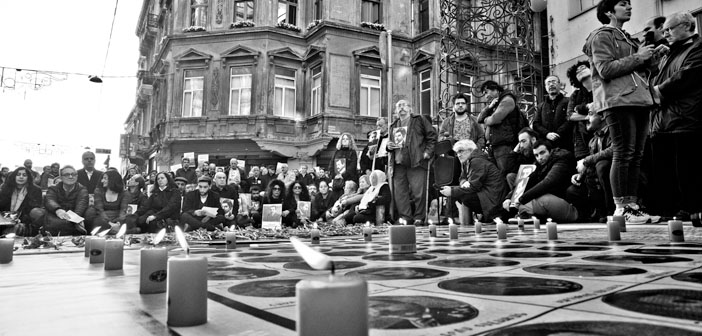Various people and institutions from Turkey, notably President Erdoğan, have been expressing their reactions against Cem Özdemir, sometimes through insults and racist statements. We talked to Özdemir about the developments that took place after June 2.
How do German public opinion and politicians consider Turkish state discourse’s insults, threats and reactions against you?
These outdated reactions made Bundestag’s decision concerning the genocide and Germany’s complicity more visible. On the one hand, people and politicians started to talk about it more and on the other hand, everyone became quite confused.
For years, we have been discussing how we can struggle against the extreme right in Germany and how we can change the political atmosphere that makes movements like Pegida strong. And now, we are faced with a group of people among Turks in Germany, which has been controlled by Turkish government and uses Islamist and nationalist discourses. This group of people causes concern in regard to culture of living together and people started to discuss about the existence of such a group seriously.
As you know, the resolution was passed with the participation of all the groups in the parliament. The MPs voting in favor of the resolution acted by their own will as the representatives of a parliament which works in accordance with law and conscience. Unlike what some people in Turkey claimed, there was nobody or no power that directed them. Putting all political discrepancies aside, all political parties, notably the parliamentary speaker Lammert, showed the importance of parliamentary system and gave this message: Bundestag is and will be able to discuss any issue when needed.
However, I expected Chancellor Merkel to take a stronger stance and to react against the threats and insults more strongly. While the majority of society supports us and acts in solidarity, Merkel only said that it is unacceptable. This attitude is beneath the will of the parliament.
What do you think about those reactions?
Though we expected such reactions, there is something surprising. A group of people, which probably wouldn’t agree on any other issue, started to point us as targets; and Erdoğan seems to be the leading figure of this group. Reactions and criticisms are parts of being a politician, but sometimes it becomes upsetting. Changing your daily life because of death threats is annoying.
Putting aside the death threats, we, German politicians, are not faced with imprisonment or lifting of our parliamentary immunity just because we express our opinion; this is happening in Turkey. Nor we are murdered in the street like my dear brother Hrant. The people who continue their struggle under difficult conditions are the ones who deserve respect.
On the other hand, we shouldn’t consider all reacting people as if they are the same. For years, the official Turkish discourse considered the genocide a taboo. Nobody talked about what happened, they just couldn’t do it. Because of the insistence on denialism, suffering of peoples in those lands, including Armenians, couldn’t have been discussed. On the contrary, wrong people were shown as heroes.
Now I see that there is a huge information gap. Unfortunately, most people are contended with what the official discourse taught them. The history that made heroes out of Unionists concealed and ignored people like Gomidas, Hagop Dilaçar and Ottoman governors who resisted the deportation. The current reactions against us are the result of this ignorance.
This is the real issue here. It is about time to say “We haven’t taught what happened to our children, we didn’t want to do it, but now, we have to do it.” Moreover, there are many Turks who don’t deny the genocide, though they are not very visible. We just have to talk about it.
This genocide law is different than the others with its content declaring German Reich as the accomplice to the genocide. In your opinion, what kind of changes would this law bring about in German and Turkish society?
We, as Bundestag, recognize and acknowledge the crime that our legal predecessor German Reich committed by not attempting to prevent this crime against humanity, though they received reports about the deportation and annihilation of Armenians in Turkey. We also emphasized that the crimes that were committed against the Herero and Nama people in the German colony will also be brought to the parliamentary agenda; though the Pope claimed that the Armenian Genocide was the first genocide in 20th century, what happened to Herero and Nama people in Africa was actually the first genocide. So, we confront our past, but we don’t accuse today’s Turkey or Germany. Moreover, we are also ready to do whatever we can for normalizing the relationship between Turkey and Armenia.
We can’t emphasize enough the uniqueness of the Holocaust. We say that confronting the dark pages of the past is hard but necessary, because it is the only for building a peaceful future; this is an advice from a country to another, which are friends. We try to give this message: speaking from our experience, recognition doesn’t make a country weaker; on the contrary, it makes a country stronger.
Now, there is no need for denialism. Our message is clear: look, we were there with you. We assume our responsibility and want to confront this tragic past, which is a part of our history. Let’s do this together, though it is painful. I am sure that this will resonate with Turkish people and make Turkish and Armenian civil society stronger. There is no way back now.





